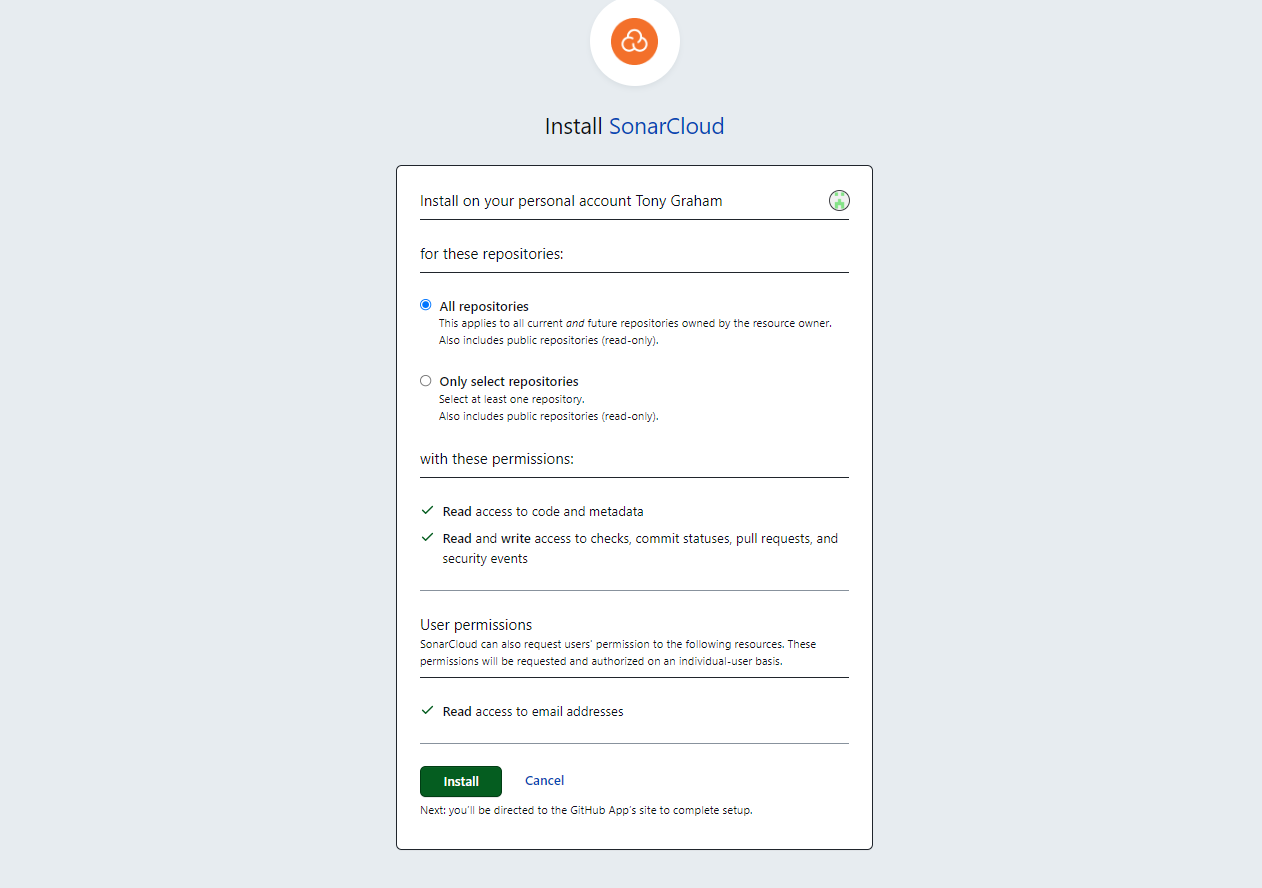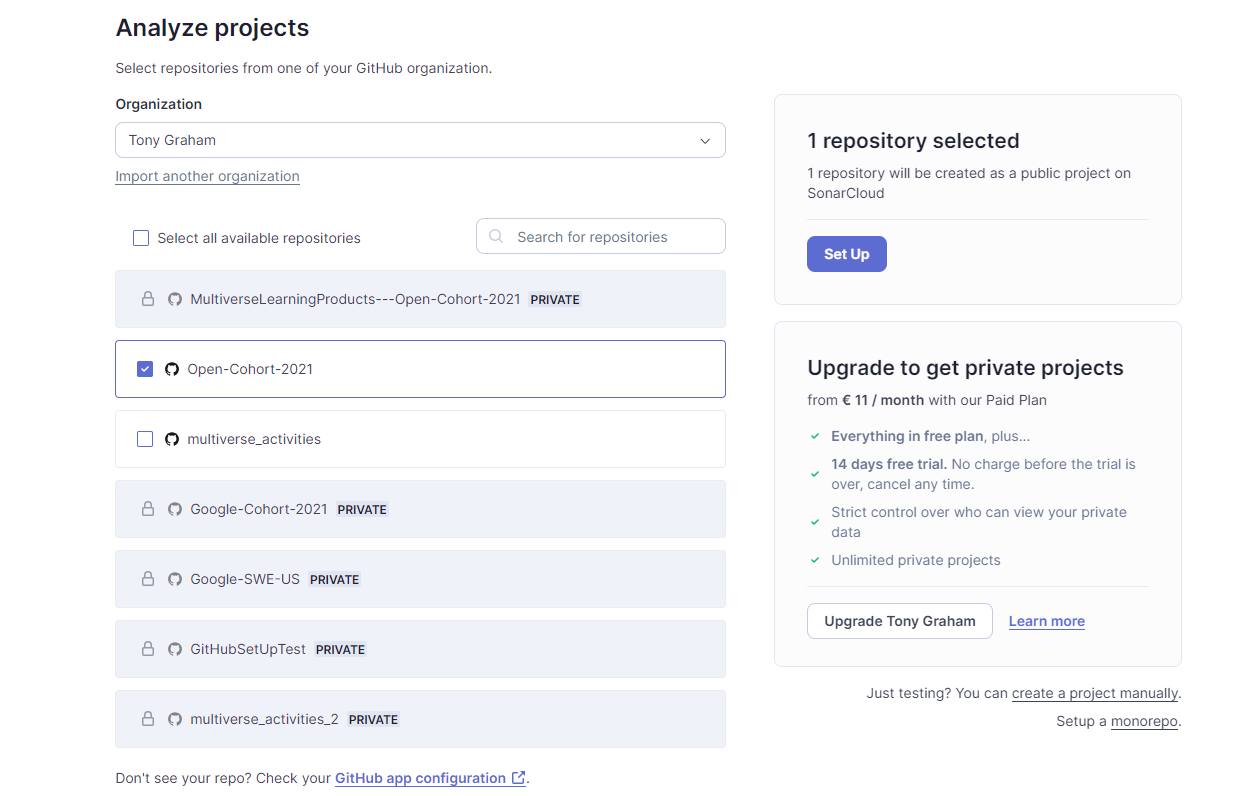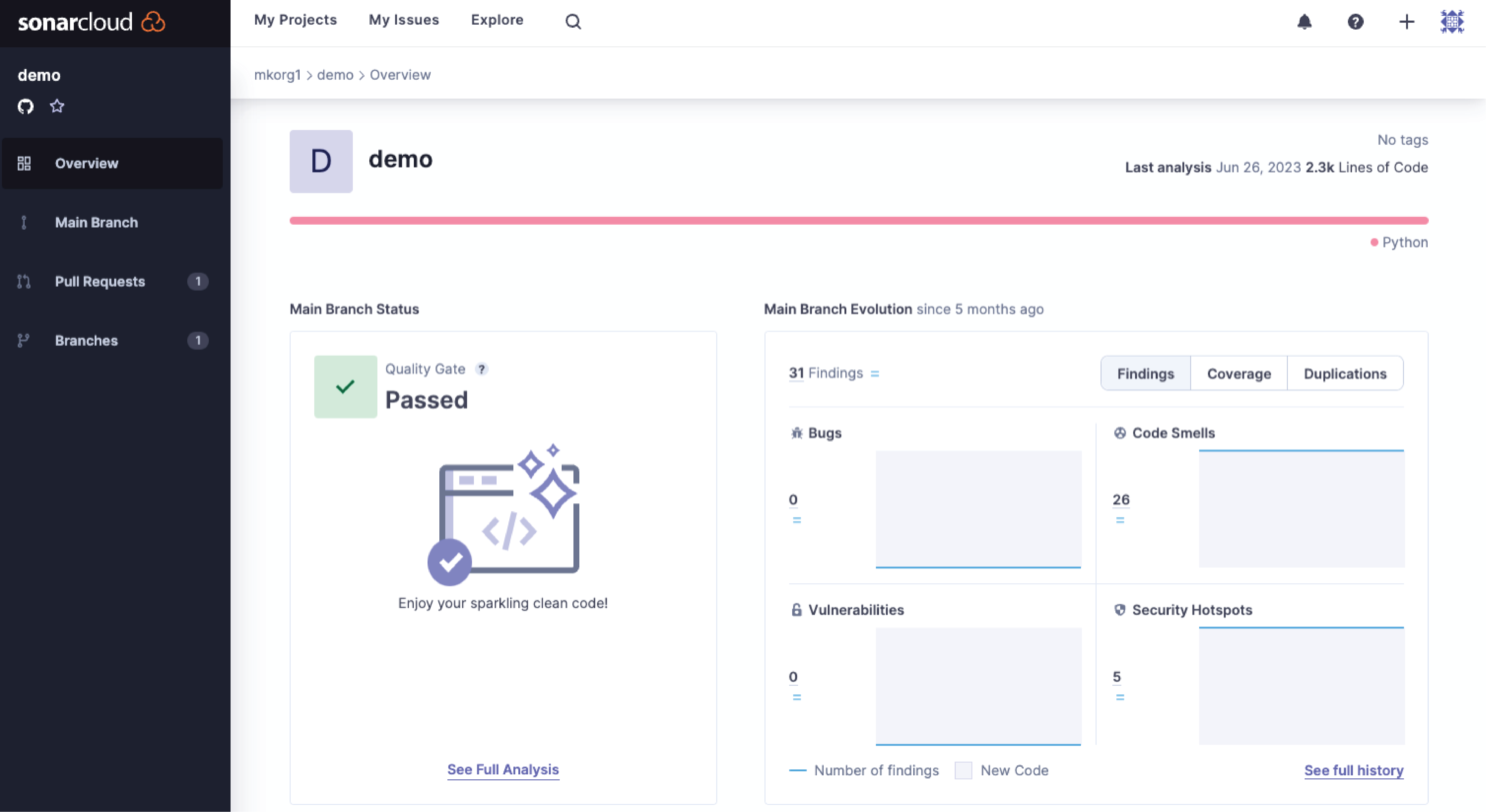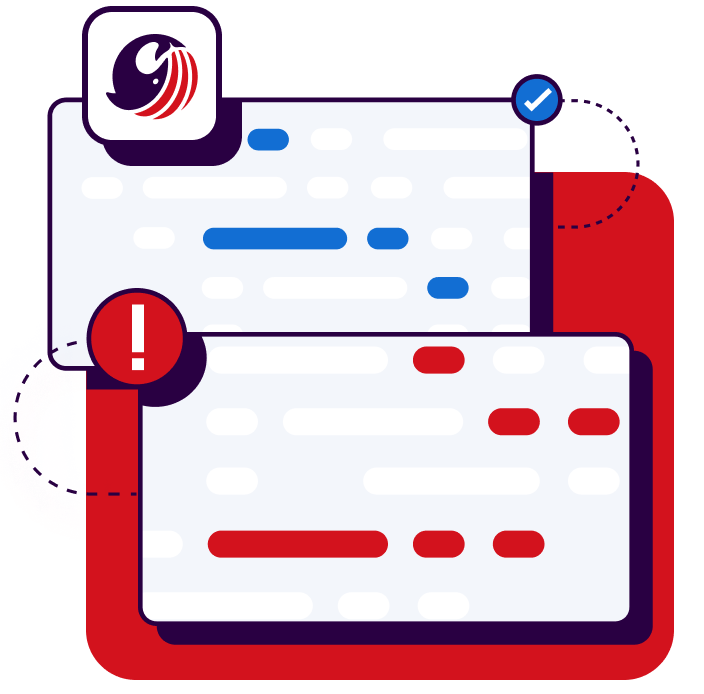Integrating SonarQube Cloud with GitHub: It’s as easy as a few clicks
In the ever-changing landscape of software development, maintaining code quality and security is critical.
This is where solutions like SonarQube Cloud and GitHub come in handy, providing a formidable combo for developers looking to maintain high standards in their projects.
In this article, we'll highlight SonarQube Cloud and GitHub and walk you through the process of integrating these two critical platforms to improve your software development productivity.
What is SonarQube Cloud?
SonarQube Cloud is a cloud-based static code analysis service that performs continuous code quality and security checks. It is intended to discover code smells, defects, and security problems in your codebase.
Integrating SonarQube Cloud into your development workflow will ensure that your code is functional and clean, leading to reliable, maintainable, and secure software.
It supports a wide range of programming languages and works flawlessly with a variety of CI/CD systems, making it an adaptable option for teams of all sizes
Why Use SonarQube Cloud in Your Software Development?
- Improved Code Quality: SonarQube Cloud helps you maintain a high standard of code quality by identifying and suggesting fixes for code smells and bugs.
- Enhanced Security: It detects security vulnerabilities in your code, helping you address potential threats before they become serious issues.
- Continuous Feedback: With continuous analysis, you get real-time feedback on your code changes, allowing you to make improvements early in the development process.
- Native integration with DevOps platforms: Easy integration with GitHub, Azure DevOps, BitBucket, andI GitLab. Incorporate automated code analysis into your DevOps workflow in a matter of minutes. Find out more about how Sonar can transform DevOps.
- Quality Gates: Prevent code that doesn’t meet defined quality standards from entering the DevOps pipeline, preventing rework and other issues later in the DevOps cycle.
- Automatic Analysis: No configuration is required to start scanning your code in most languages.
What is GitHub?
GitHub is a web-based DevOps platform that serves as a central hub for software development teams to collaborate on projects, manage code, and automate workflows. It includes version control with Git, issue tracking, and continuous integration (CI), capabilities.
Developers use Git, a distributed version control system, to save, manage, and track changes to their codebase.
GitHub has emerged as a primary center for open-source projects, and it is frequently used for private repositories by both organizations and individual individuals.
Why Use GitHub in Software Development?
- Collaboration: GitHub makes it easy for teams to collaborate on projects, regardless of their physical location. Features like pull requests, code reviews, and issue tracking facilitate seamless collaboration and communication among team members.
- Version Control: With Git integration, GitHub provides powerful version control capabilities, allowing developers to track changes, revert to previous versions, and manage multiple versions of their codebase.
- Community and Open Source: GitHub hosts a vast community of developers and open-source projects. It's a place to share your work, contribute to other projects, and learn from the collective knowledge of the community.
- Integration with Tools: GitHub integrates with a wide range of development tools and services, including continuous integration and deployment (CI/CD) platforms, project management tools, and code analysis solutions like SonarQube Cloud and SonarQube Server.
SonarQube Cloud and GitHub Integration
Connecting SonarQube Cloud with GitHub is as easy as a few clicks.
Start by signing up for a SonarQube Cloud account at SonarQube Cloud.io.
You can use your GitHub account for a quick and easy sign-up process.
After that, follow the steps below and you will be writing Clean Code within minutes.
Integration steps:
- Once logged into SonarQube Cloud, import an organization from GitHub or create an organization manually.
- Install the SonarQube Cloud App on GitHub repository

- Create a SonarQube Cloud organization that corresponds to your GitHub workspace.
- Choose a SonarQube Cloud plan, free or paid.
Analysis steps:
- Select a project to import.
- Scanning your first project is as simple as clicking Set Up. SonarQube Cloud’s automatic analysis doesn’t require configuration so you can begin scanning immediately.

- Set the New Code Definition (NCD) for your project. By defining what is considered new code, developers can focus their attention on the most recent changes following Sonar’s recommended Clean as You Code approach.
- Automatic analysis will be triggered instantly upon setup completion.
- SonarQube Cloud will return a dashboard with the health status of your code showing issues pertaining to reliability, security, maintainability, and more.

That’s it!
Interactive demo
Need a little more help?
Here is a step-by-step interactive tutorial detailing everything you need to start analyzing your first project.
GitHub has become an essential tool in modern software development, providing a reliable platform for version control, collaboration, and integration with other development tools.
Its significance goes beyond code hosting; it fosters collaboration and continuous improvement, both of which are essential components of successful software development.
GitHub integrated with SonarQube Cloud, ensures developers' projects are not only efficiently managed, but also meet the highest standards of code quality and security.
Start using SonarQube Cloud right now.

